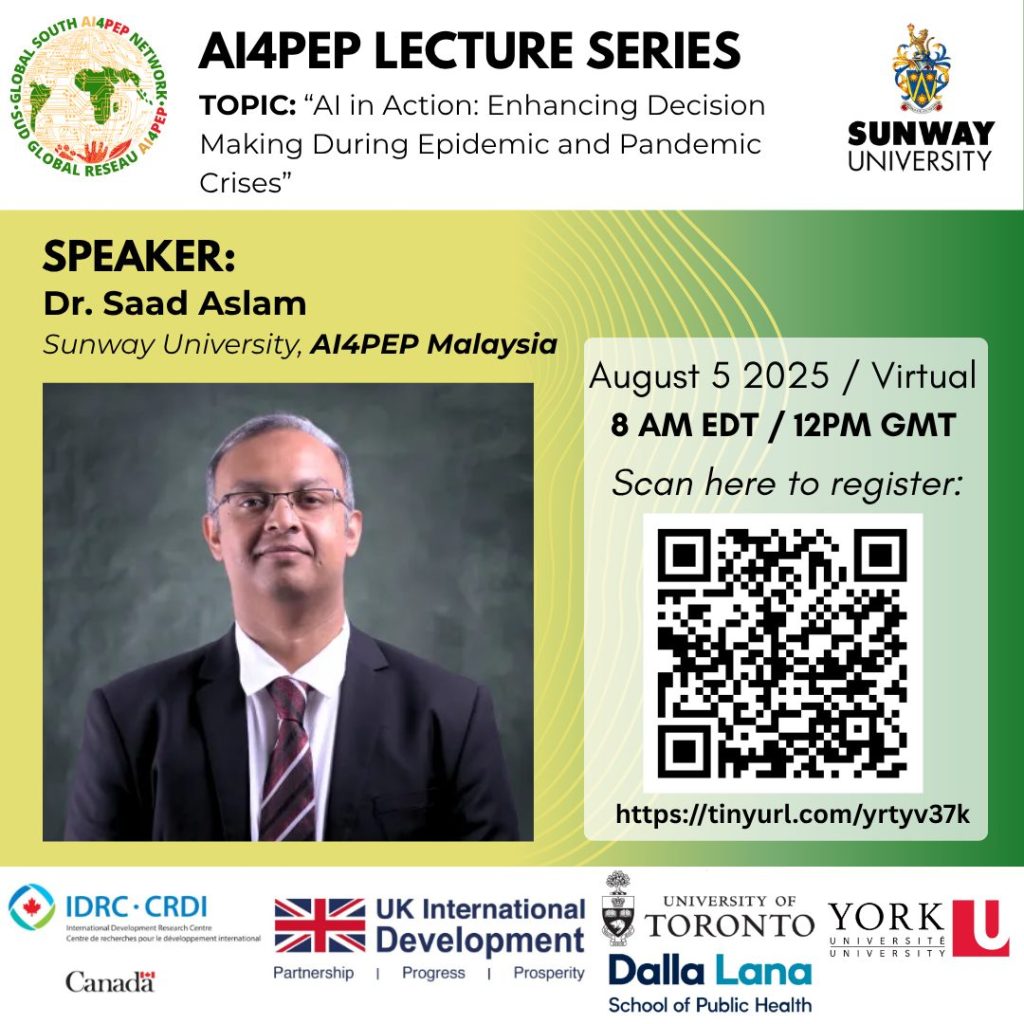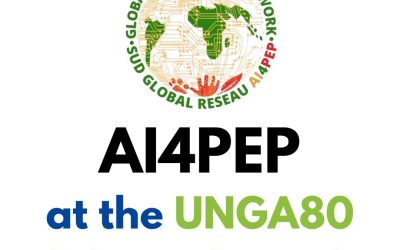
Harnessing AI for Pandemic Preparedness: Insights from Dr. Saad Aslam’s Lecture
AI4PEP’s latest lecture series featured Dr. Saad Aslam, who delivered a comprehensive session on the transformative role of Artificial Intelligence (AI) in epidemic and pandemic crisis management. His talk unpacked not only the why of AI in public health, but also the how from foundational concepts to real-world applications, and from challenges to future directions.
Why AI is Needed in Health Crisis Response
Dr. Aslam began by highlighting the devastating impacts of global health emergencies, from COVID-19 to the Ebola outbreak, and the limitations of traditional decision-making systems. Manual data collection, slow reporting, and incomplete information lead to delayed responses, higher mortality rates, and weakened public trust. AI, he explained, can address these shortcomings through speed, predictive power, and scalability, enabling early detection and informed interventions.
Foundations of AI in Healthcare
The lecture covered the building blocks of AI, including machine learning, deep learning, and their healthcare applications. Dr. Aslam outlined how predictive, diagnostic, and prescriptive analytics, powered by quality data from sources like epidemiological records, genomic sequencing, mobility patterns, and social media sentiment, can guide evidence-based decision-making during crises.
AI in Action: Applications for Pandemic Preparedness
From early outbreak detection to predictive spread modeling, AI’s potential in healthcare is vast. Dr. Aslam showcased examples such as BlueDot, which flagged the Wuhan outbreak nine days before the WHO alert, and AI-enhanced dashboards that integrate real-time, multi-source data. Other applications discussed included:
- Resource Allocation: Optimizing supply chains for vaccines, PPE, and medical equipment.
- Diagnostics & Screening: Using deep learning for faster and more accurate image-based diagnosis.
- Public Sentiment Analysis: Using NLP to monitor misinformation, vaccine hesitancy, and public trust.
- Contact Tracing & Mobility Tracking: Identifying hotspots and exposure chains using AI and IoT tools.
Integrating AI with Human Decision-Making
Emphasizing that “AI is the co-pilot, not the pilot,” Dr. Aslam outlined how AI augments, rather than replaces, human judgment. Decision Support Systems can process large-scale data and generate insights rapidly, but ethical considerations, empathy, and policy decisions remain human-led.
Challenges and Future Directions
The discussion also addressed key barriers: data quality, bias, privacy concerns, infrastructure gaps, and scalability. Dr. Aslam pointed to emerging solutions such as federated learning for privacy-preserving model training, digital twins for policy simulation, explainable AI for trust-building, and global collaboration for standardized data sharing.
A Call for Collaboration
In closing, Dr. Aslam stressed that while AI is not a silver bullet, when combined with human expertise and international cooperation, it can be a powerful tool for saving lives. He encouraged partnerships across governments, academia, and industry to strengthen public health ecosystems and create future-ready, AI-enabled pandemic preparedness strategies.
“… AI is not a silver bullet but when aligned with human judgment and global cooperation it becomes a powerful tool for saving lives.”
To watch the full lecture and explore past sessions, visit AI4PEP Youtube channel


